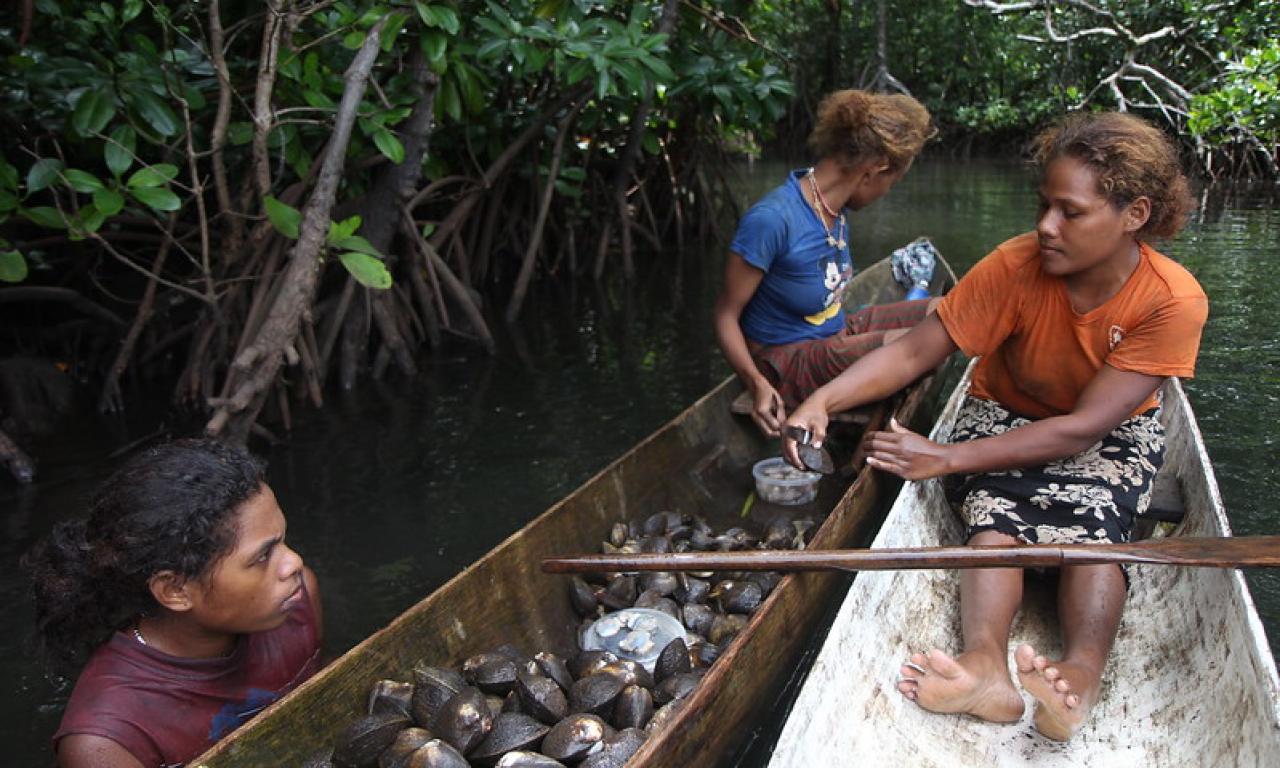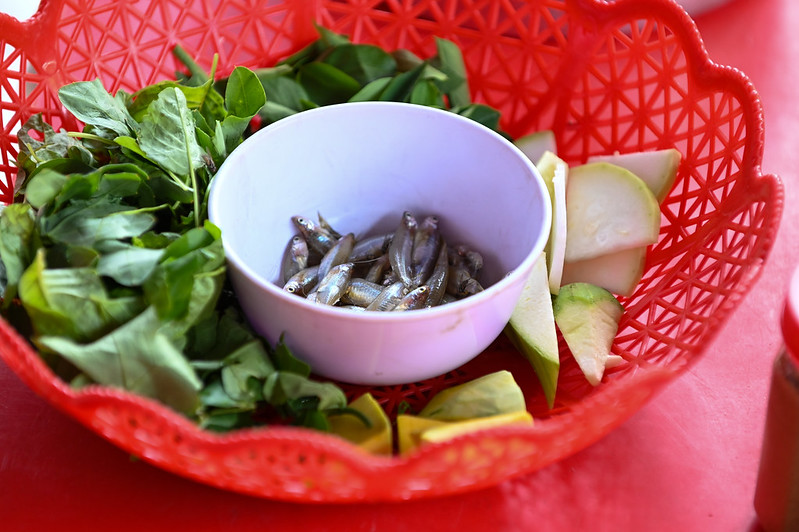
- Increasing aquatic food production and consumption can prevent widespread micronutrient deficiencies in low- and middle-income countries
- Making aquatic foods more affordable and accessible is integral to countering diet-related noncommunicable diseases in vulnerable populations
Some 166 million micronutrient deficiencies could be averted by 2030 if the global supply of aquatic foods is increased by 15.5 million tons to meet the dietary needs of low-income consumers, new research has found.
Aquatic foods – animals, plants and microorganisms grown or harvested from oceans and inland waters – are integral to growth and development, especially during the first 1000 days of life, and can be leveraged to tackle malnutrition and other diet-related health conditions in low- and middle-income countries.
Despite their nourishing potential, aquatic foods are often undervalued as a nutritional solution because their diversity is often reduced to the protein and energy value of a single food type, concluded the paper’s authors.
The study, entitled ‘Aquatic foods to nourish nations,’ highlighted several ways in which diverse aquatic foods can improve human health and nutrition by providing locally available, sustainable and affordable alternatives to red and processed meat.
“Aquatic foods are the closest we have to a ‘nature-based solution’ to the challenge of transforming our current food system to one that is healthier, more sustainable and more fairly distributed. Aquatic foods are also often harvested from waters that are ‘commons’ – not restricted to private ownership – so even the landless poor have access to nutrient-rich aquatic foods,” said Eddie Allison, one of the paper’s co-authors and the interim director of science and research at WorldFish.

Produced as one of five initial scientific papers for the Blue Food Assessment (BFA), the research found that an increase in the sustainable production of aquatic foods through investments in aquaculture and improved fisheries management would lead to a decrease in prices by 26 percent, making aquatic foods more affordable for low-income populations around the world and thereby increasing consumption.
“Our research shows aquatic foods have a central role in a holistic transformation of food, land and water systems toward sustainable healthy diets for all. By prioritizing diverse aquatic foods in research, policy and investment agendas, we can nourish nations, all people and our planet,” said Shakuntala Thilsted, co-author, winner of the 2021 World Food Prize and research leader for value chains and nutrition at WorldFish.
The findings are based on data from the Aquatic Foods Composition Database (AFCD), which was developed to increase understanding of the potential nutritional benefits of aquatic foods. It is now the most comprehensive global database of its kind, profiling 3,753 aquatic food species and their nutritional value, with important implications for nutrition-sensitive approaches to fisheries management.
“For the first time, our study highlights the significant role of aquatic foods in meeting the dietary needs of nutritionally vulnerable populations, while also mitigating chronic diseases by weaning people away from red and processed meats,” said lead author Christopher Golden, assistant professor of nutrition and planetary health at Harvard Chan School of Public Health.
“Aquatic foods can provide a potential pathway for nutritional equity,” said Zachary Koehn, Early Career Fellow at the Center for Ocean Solutions, Stanford University. “Policymakers and development stakeholders should leverage the availability of culturally appropriate and sustainably produced aquatic foods to reduce food insecurity and tackle malnutrition.”
Read the Blue Food Assessment paper to learn more about the significant role of aquatic foods in meeting the dietary needs of nutritionally vulnerable populations.
The Blue Food Assessment (BFA) is an international joint initiative bringing together over 100 scientists from more than 25 institutions. Led by the Stockholm Resilience Centre at Stockholm University, Stanford University, and EAT, the Blue Food Assessment supports decision-makers in evaluating trade-offs and implementing solutions to build healthy, equitable and sustainable food systems. WorldFish has been a key research contributor to BFA, with seven of its scientists among the authors of the papers released today. WorldFish has guided the direction of the study through representation on the BFS Scientific Leadership Team by Eddie Allison, interim director of science and research, Shakuntala Thilsted, global lead for nutrition and public health, and Mike Phillips, director of aquaculture and fisheries science for CGIAR Research Program on Fish Agri-Food Systems (FISH).
